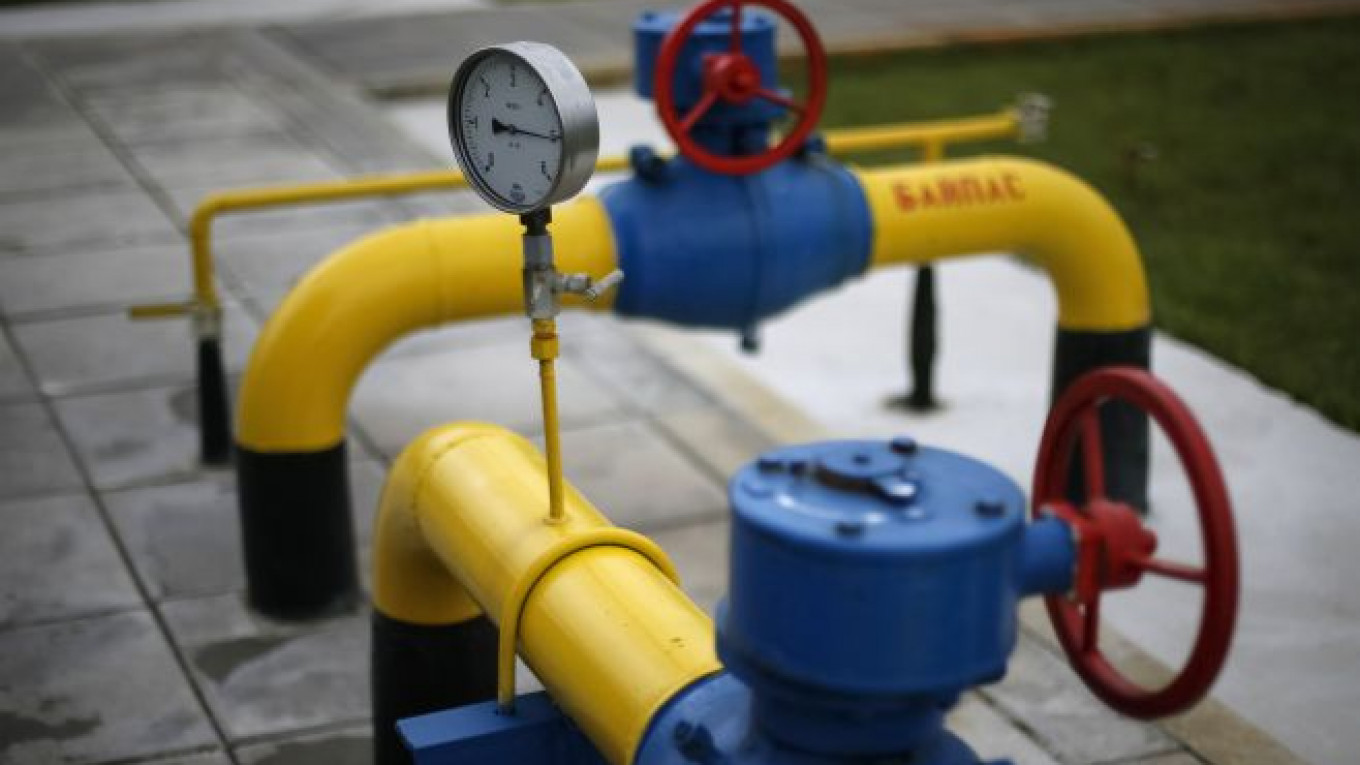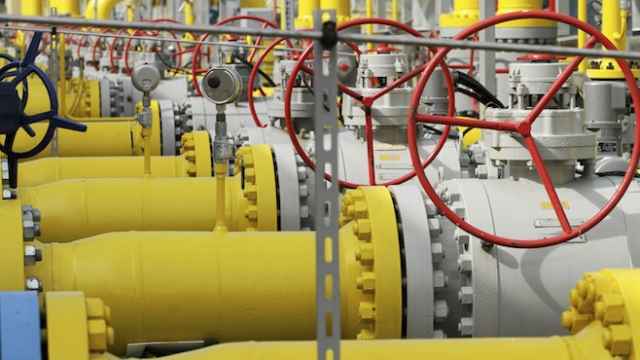For two weeks, reports have been surfacing of large, peculiar falls in volumes of Russian gas deliveries to Eastern European countries that are supplying gas to Ukraine, with which Russia is locked in a gas price dispute.
On Thursday, Russian Energy Minister Alexander Novak injected some clarity, saying that Moscow will not cut supplies to countries who offer reverse gas flows to Kiev.
But what Gazprom, Russia's state-owned energy giant, can do and is doing, is limit supplies to minimum levels within existing contracts, industry analysts said, curbing potential reverse gas volumes and boosting its leverage in upcoming talks with Ukraine on gas prices.
Russia cut supplies to Ukraine in June after Kiev refused to meet Gazprom's price demands and refused to pay its debt, which Gazprom says amounts to $5 billion. Moscow and Kiev have been at loggerheads since the ousting of a pro-Russian president in street protests and Russia's subsequent annexation of Crimea in March. Europe has strongly supported Ukraine against what it sees as Russian aggression.
Serial Shortages
Russian natural gas flows to the European Union through Slovakia via Ukraine on Thursday were similar to previous days this week, but compared to last week volumes have fallen about 17 percent to their lowest since at least 2011, Slovak pipeline operator Eustream told Reuters.
On Wednesday, Ukraine's Energy Minister Yuriy Prodan said gas supplies from Russia passing through Ukraine to Slovakia have decreased by 25 percent, Interfax reported.
Also on Wednesday, Jan Chadam, the head of Poland's gas network operator Gaz System, told Bloomberg that Poland's gas company PGNiG is receiving 20 percent less gas than had been requested from Gazprom under the current contract. PGNiG was continuing to supply Ukraine with 4 million cubic meters of fuel a day.
Poland was already complaining of gas supply shortages from Russia last week, as was Austria's energy operator E-Control, which said shipments from Gazprom had decreased by 15 percent.
Spot prices for gas on the Vienna Stock Exchange have grown steadily since the first news of gas supply falls, while the figures for August show spot trade volumes have grown 86 percent compared with the same period last year.
Reports in Western media this week, which alleged that Russia was using gas as a weapon in its political conflict with Ukraine and Europe, appear to have alarmed President Vladimir Putin. At a meeting Wednesday with the head of Gazprom, Alexei Miller, Putin asked for an explanation on the alleged supply shortages.
"Gazprom is carrying out stable daily supplies to European consumers. We fully adhere to our contractual obligations," Miller was quoted as saying in a transcript on the Kremlin's website.
The talk of shortages came after Gazprom denied requests from European companies for extra volumes, Miller said. Russia cannot ship more gas than it had previously agreed to because the country has to prepare for its own winter, which is expected to be exceptionally cold this year, he added.
Currently, 63.5 billion cubic meters of gas has been stockpiled in Russia's underground stores. Miller said another 8.5 billion bcm needs to be be stored over the next 1.5 months, hinting on how long Gazprom might keep supplies to Europe minimized.
According to Andrei Polischuk, an oil and gas analyst at Raiffeisenbank, Gazprom has the right not to supply more gas than had been agreed under the contract, especially when the price for it remains the same.
"A number of European energy companies have been given discounts on gas supplies and were allowed to postpone their payments, in order to prop-up their financial standing, not to see gas re-exported to Ukraine," said Alexander Pasechnik, head of analysis at the Moscow-based National Energy Security Fund.
Slovakia began reverse supplies of gas to Ukraine at the beginning of September. In April, Ukraine's gas pipeline operator Ukrtransgaz and Slovakia's Eustream signed an agreement under which Ukraine could be supplied with up to 10 billion cubic meters of gas per year.
Gazprom executives have been against reverse gas supplies to Ukraine, calling them semi-legal at best.
"This scenario is unacceptable not only due to economic issues but also for political reasons," Pasechnik said.
Numerous rounds of trilateral talks between Russia, Ukraine and EU on the price Kiev should pay for supplies and the terms of debt payment have failed. The latest talks are scheduled for Sept. 27, although Russia's energy ministry called on Wednesday for an earlier date, saying "now every day counts."
Contact the author at a.panin@imedia.ru
A Message from The Moscow Times:
Dear readers,
We are facing unprecedented challenges. Russia's Prosecutor General's Office has designated The Moscow Times as an "undesirable" organization, criminalizing our work and putting our staff at risk of prosecution. This follows our earlier unjust labeling as a "foreign agent."
These actions are direct attempts to silence independent journalism in Russia. The authorities claim our work "discredits the decisions of the Russian leadership." We see things differently: we strive to provide accurate, unbiased reporting on Russia.
We, the journalists of The Moscow Times, refuse to be silenced. But to continue our work, we need your help.
Your support, no matter how small, makes a world of difference. If you can, please support us monthly starting from just $2. It's quick to set up, and every contribution makes a significant impact.
By supporting The Moscow Times, you're defending open, independent journalism in the face of repression. Thank you for standing with us.
Remind me later.






